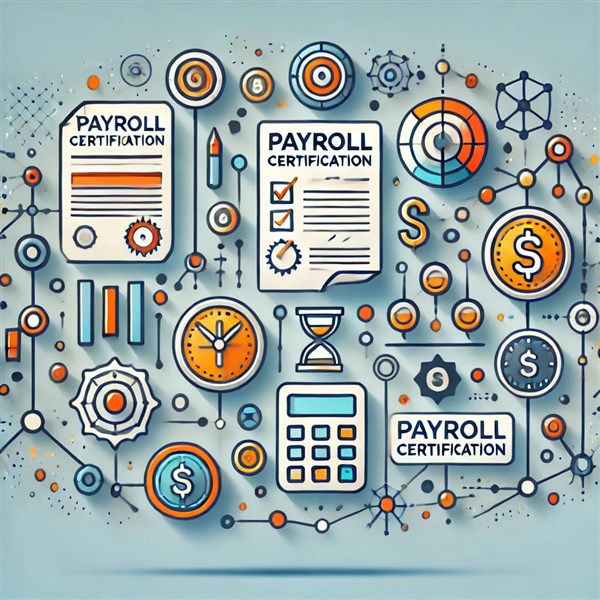
In today’s fast-paced business environment, the role of Human Resources (HR) professionals has evolved significantly. While traditional HR functions such as recruitment, employee relations, and performance management remain vital, the increasing complexity of payroll systems and regulations has placed a premium on specialized knowledge in this area. Payroll certification has emerged as an essential qualification for HR practitioners, providing them with the skills and credibility needed to manage payroll effectively and ensure compliance with legal requirements. This blog will explore the importance of payroll certification for HR professionals, its benefits, and how it enhances their overall credibility.
Understanding Payroll Certification
Payroll certification is a credential that validates an individual's knowledge and expertise in payroll management. It covers various aspects of payroll, including wage calculations, tax regulations, labor laws, and compliance with government regulations. Many organizations offer payroll certification programs, such as the American Payroll Association (APA) and the National Payroll Institute. These programs typically involve coursework, examinations, and ongoing education requirements to maintain certification.
Enhancing Professional Competence
One of the primary reasons why payroll certification is crucial for HR professionals is that it enhances their competence in managing payroll processes. Payroll is a complex function that requires a deep understanding of various components, including:
- Wage and Hour Laws: HR professionals must be familiar with federal, state, and local wage and hour laws to ensure compliance. Failure to comply can result in costly penalties for the organization.
- Tax Regulations: Payroll professionals need to understand the intricacies of tax withholdings, filings, and deductions to avoid errors that can lead to audits and fines.
- Benefits Administration: Knowledge of employee benefits and how they impact payroll is essential for accurate processing and reporting.
- Recordkeeping Requirements: HR professionals must maintain accurate payroll records as mandated by law. Certification programs often cover best practices for recordkeeping and documentation.
By obtaining payroll certification, HR professionals gain the knowledge and skills necessary to navigate these complexities effectively. This expertise not only helps in minimizing errors but also enhances the overall efficiency of the payroll process.
Increasing Credibility and Trust
In an era where transparency and accountability are paramount, payroll certification enhances the credibility of HR professionals. Employers, employees, and stakeholders are more likely to trust certified payroll professionals because they have demonstrated a commitment to professionalism and excellence. This trust is essential in building strong relationships within the organization and fostering a culture of compliance.
When HR professionals possess a payroll certification, it signals to management and colleagues that they are equipped to handle payroll matters proficiently. This credibility can lead to increased responsibilities, promotions, and opportunities for career advancement within the HR field.
Staying Updated with Industry Standards
The payroll landscape is constantly evolving, with new regulations, technologies, and best practices emerging regularly. Payroll certification programs often require continuing education to maintain certification. This requirement ensures that HR professionals stay current with industry standards and changes in legislation.
By participating in ongoing training and education, certified payroll professionals are better equipped to adapt to changes, implement new technologies, and optimize payroll processes. This proactive approach not only benefits the individual but also positively impacts the organization as a whole.
Risk Mitigation and Compliance
Payroll compliance is critical for organizations to avoid legal issues and financial penalties. HR professionals who are certified in payroll management are more adept at identifying compliance risks and implementing strategies to mitigate them. Certification programs typically cover essential topics such as:
- FLSA Compliance: Understanding the Fair Labor Standards Act and its implications for payroll.
- Payroll Audits: Learning how to conduct payroll audits to ensure accuracy and compliance.
- Reporting Requirements: Familiarity with various payroll reports, including W-2s, 1099s, and state tax reports.
With a strong foundation in compliance, HR professionals can safeguard their organizations against costly mistakes and enhance their ability to navigate audits and investigations.
Career Advancement Opportunities
For HR professionals looking to advance their careers, obtaining payroll certification can be a significant differentiator. Many organizations prefer to promote individuals with specialized certifications, as they demonstrate a commitment to professional development and expertise in their field.
Additionally, payroll certification can open doors to various career paths within HR, including:
- Payroll Manager: Overseeing payroll operations and ensuring compliance with regulations.
- Compensation and Benefits Specialist: Managing employee compensation packages and benefits administration.
- HR Consultant: Providing expertise to organizations seeking to optimize their payroll processes and compliance.
The skills gained through payroll certification make HR professionals more competitive in the job market, enhancing their prospects for advancement and career growth.
Building a Network of Professionals
Enrolling in payroll certification programs often provides opportunities to connect with other HR professionals. Networking with peers in the industry can lead to valuable relationships, mentorship opportunities, and knowledge-sharing. These connections can be beneficial for career advancement and staying informed about industry trends and best practices.
Moreover, many certification programs have communities or forums where professionals can engage in discussions, ask questions, and share experiences. This collaborative environment fosters continuous learning and growth, which is essential in the dynamic field of HR.
Conclusion
In summary, payroll certification is essential for HR professionals seeking to excel in their roles and contribute meaningfully to their organizations. It enhances professional competence, increases credibility, ensures compliance with regulations, and opens doors to career advancement opportunities. As the payroll landscape continues to evolve, the need for knowledgeable and certified professionals will only grow.
For HR practitioners, investing in payroll certification is not just a means to an end; it is a commitment to excellence and a pathway to becoming a trusted resource within their organizations. By obtaining this certification, HR professionals can confidently navigate the complexities of payroll management, mitigate risks, and drive organizational success.
Koenig Solutions, a leading IT training company, offers comprehensive Payroll Certification training courses that provide HR professionals with the necessary skills and knowledge to manage payroll effectively. The courses are designed to be interactive and engaging, making it a valuable learning experience for all participants.
So, enhance your HR career with a Payroll Certification from Koenig Solutions and equip yourself with the skills and knowledge you need to succeed in today's competitive business environment.







COMMENT